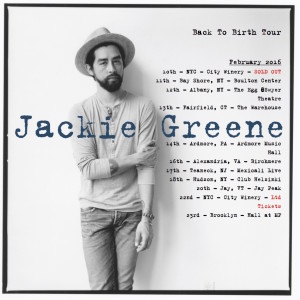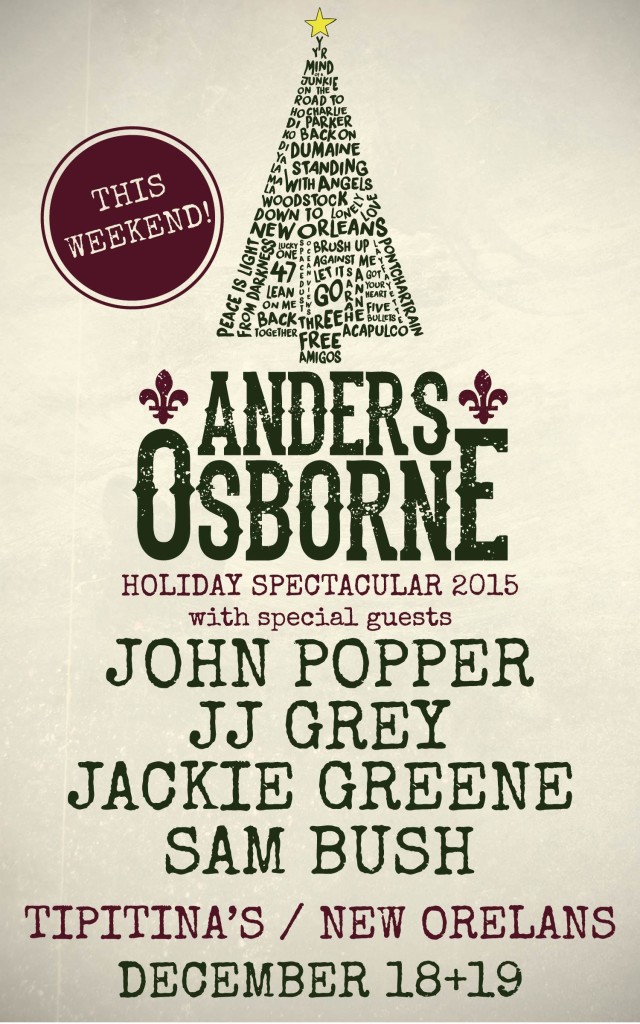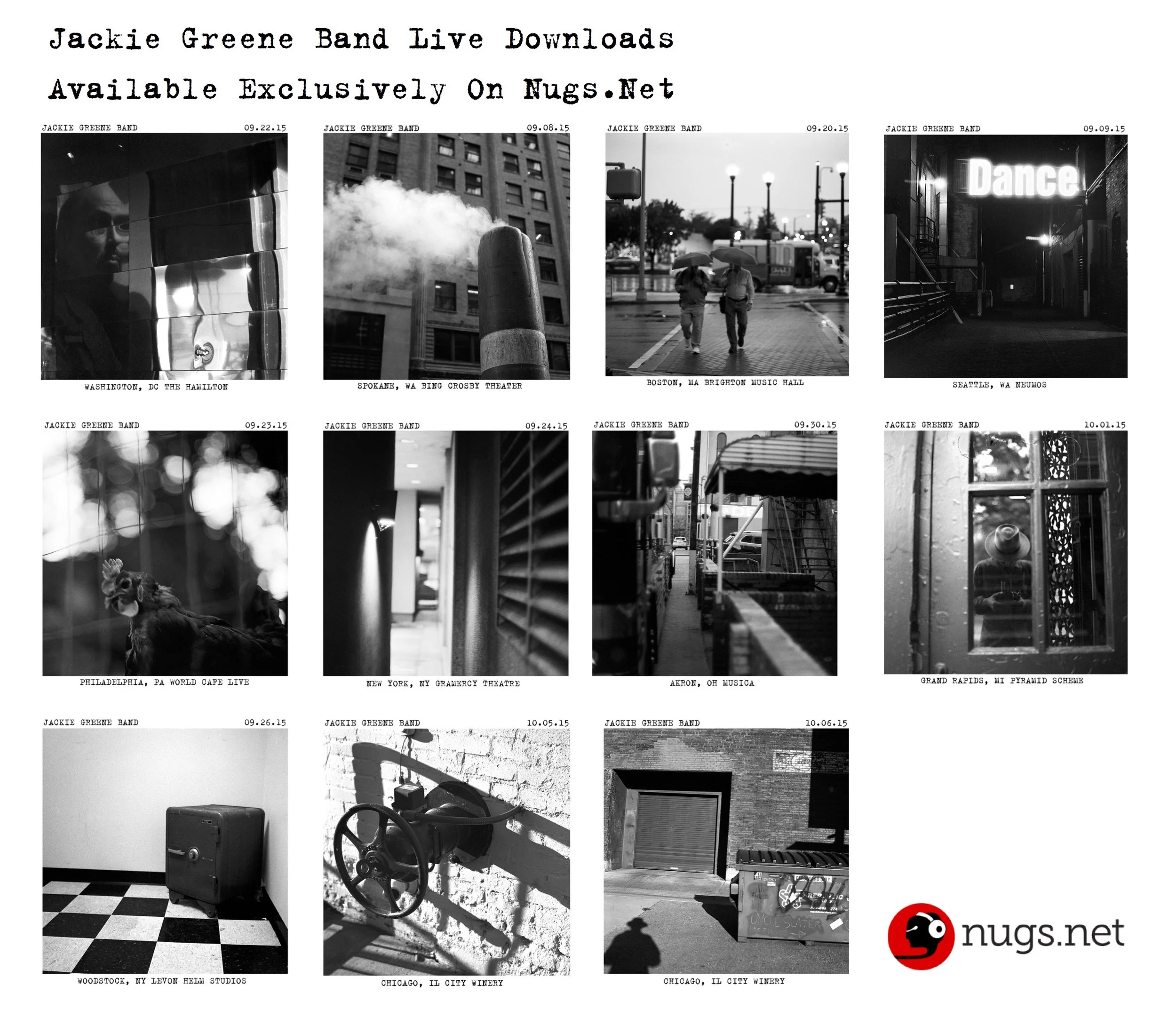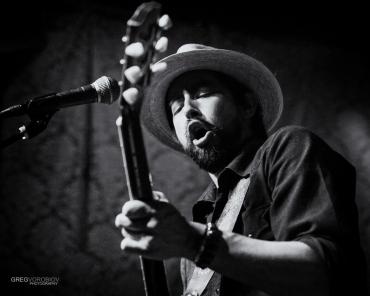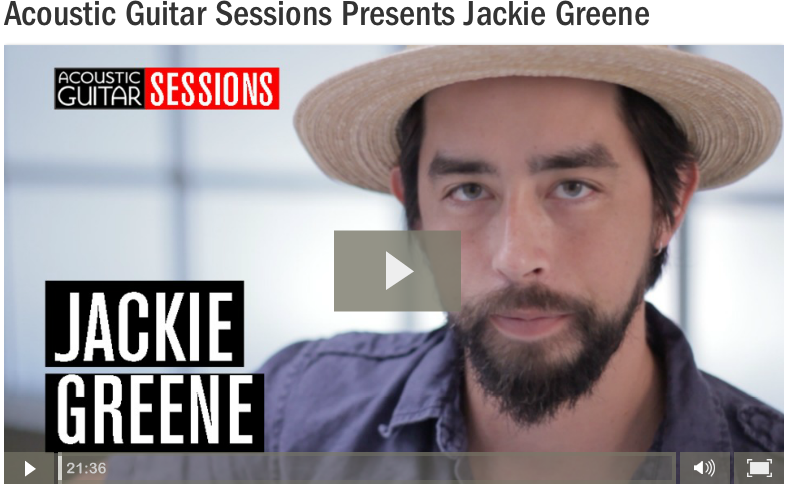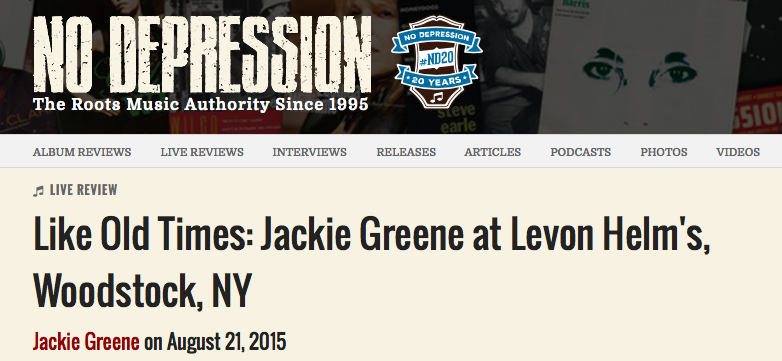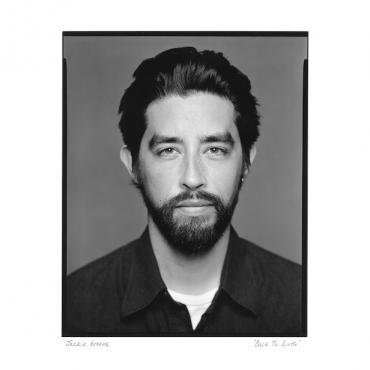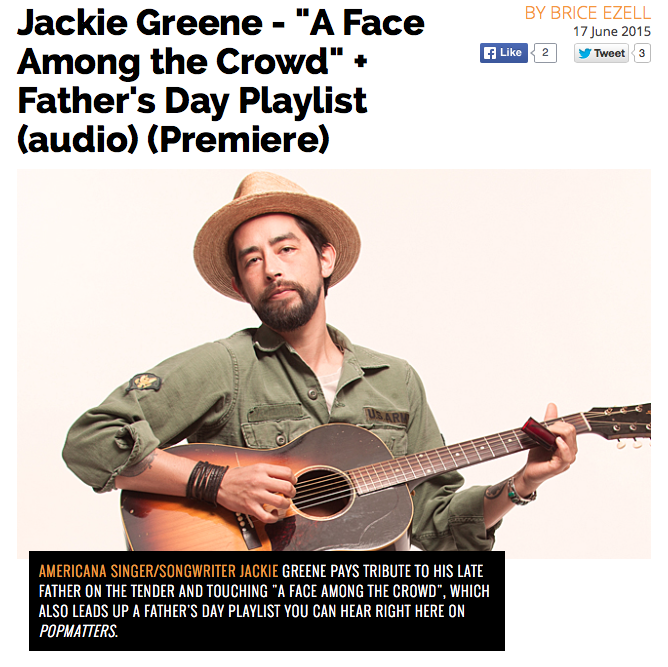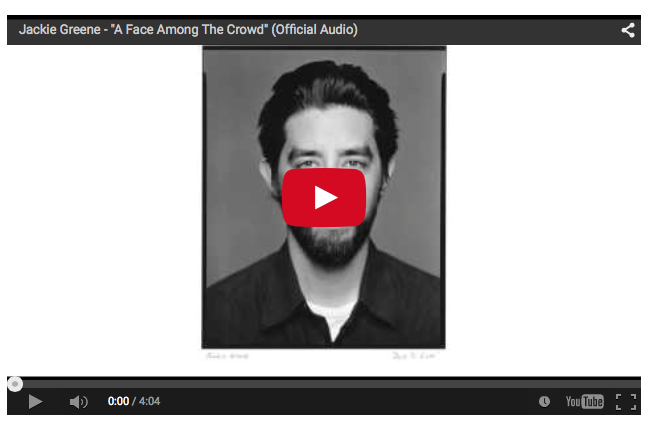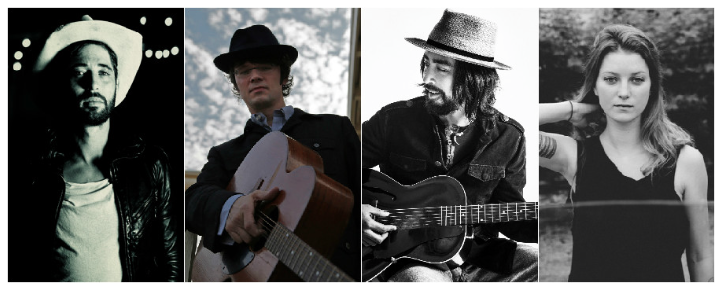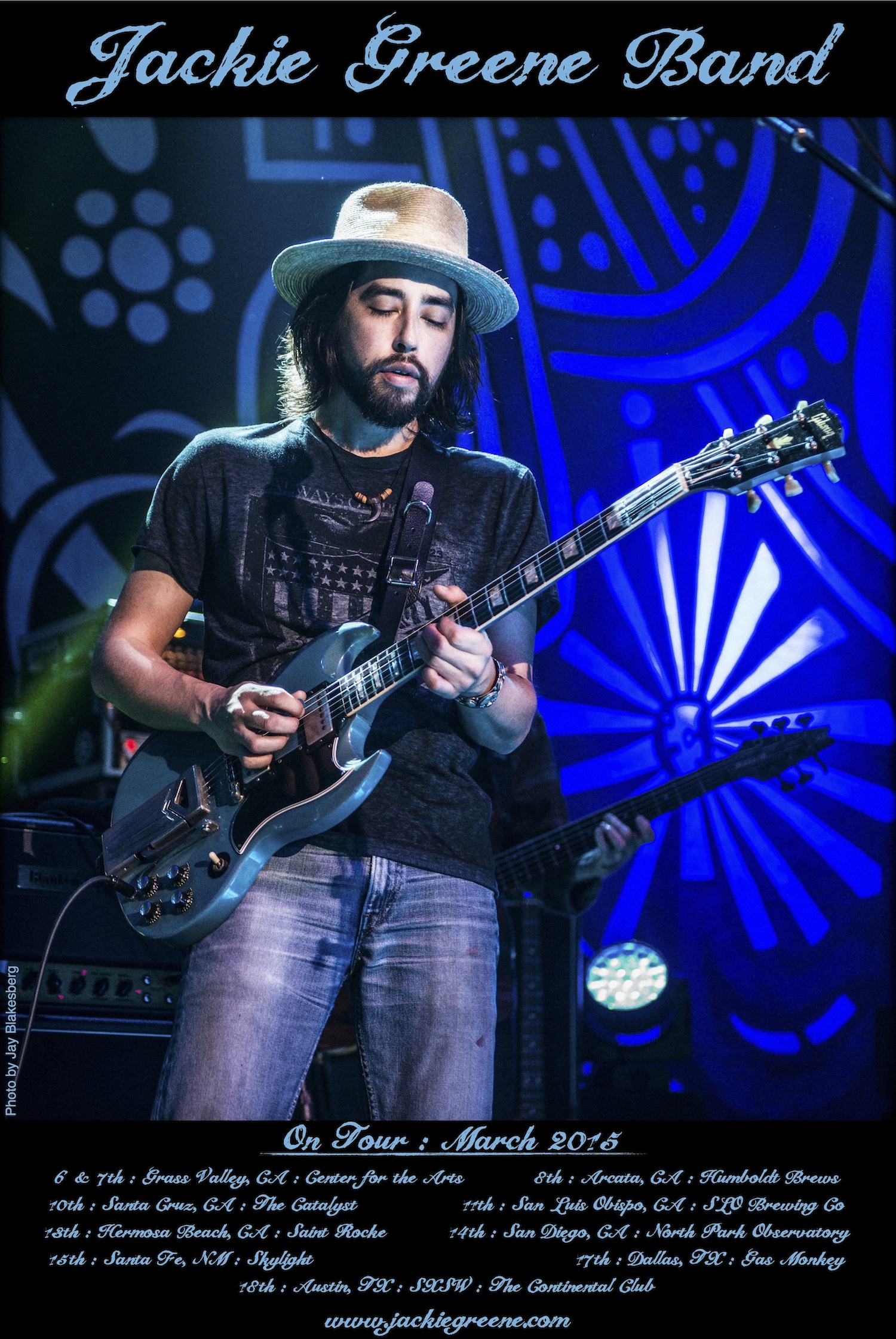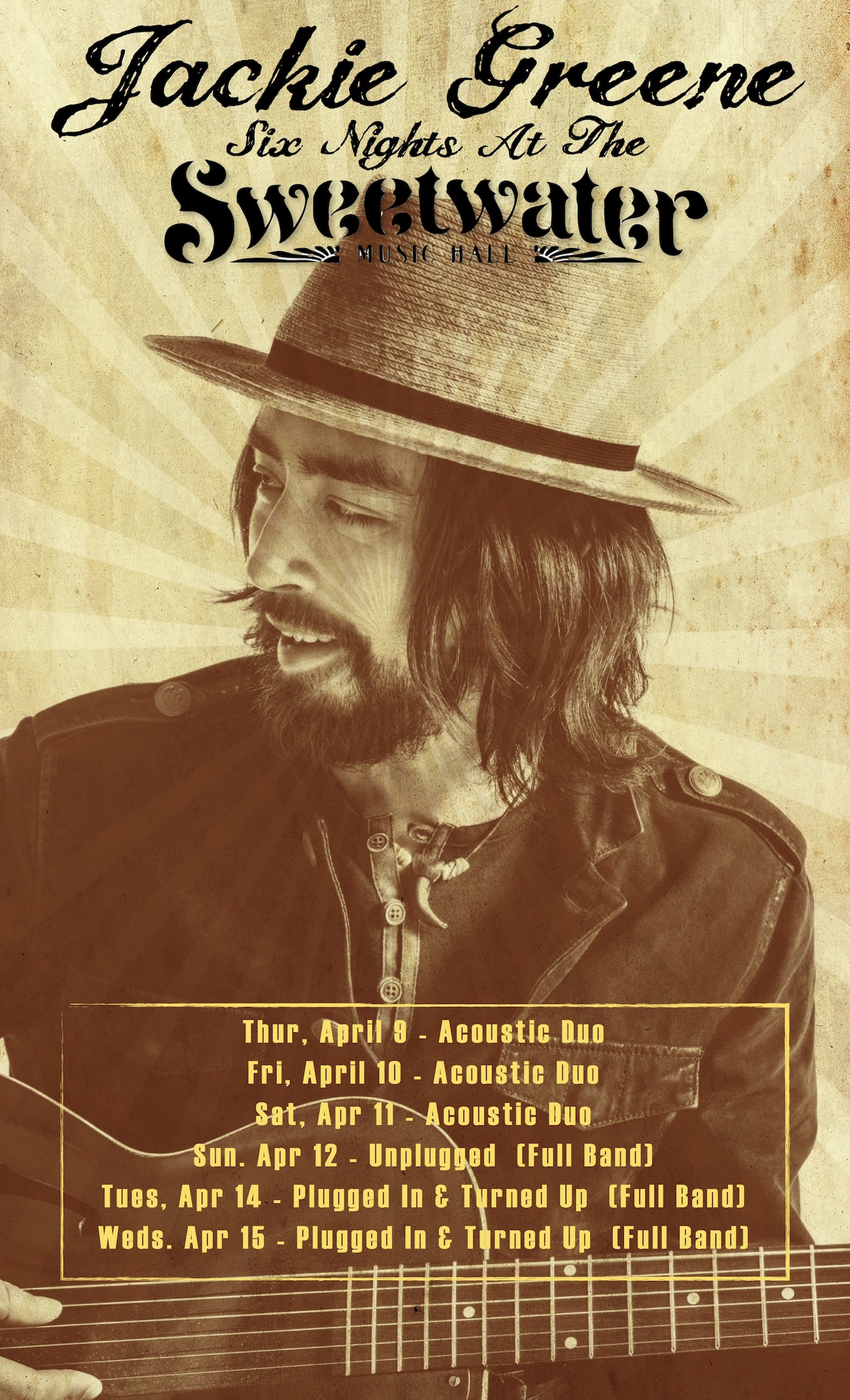Make no mistake. Jackie Greene’s been very busy of late. Never mind the fact that the auspiciously named Back to Birth is his solo first album in five years. That’s hardly surprising considering the extracurricular activities that have occupied him in recent times. For starters, there’s his participation in Trigger Hipper, that super group of sorts that he co-fronts with Joan Osborne. Then there’s the other company he keeps, as hired hand for the Black Crowes and a notable pair of Grateful Dead offshoots, Phil Lesh and Friends and SRW, an acoustic trio that finds him co-billed with Bob Weir and the Crowes’ Chris Robinson.
CLICK HERE TO READ ARTICLE ON GLIDE.COM
It’s not a bad resume for a musician whose string of seven albums dates back only fifteen years, to the year 2000, when he self-produced and self-released his limited edition debut, the ironically titled Rusty Nails. In the interim, he’s managed to garner a formidable reputation from critics, fans and contemporaries, even while retaining purity in his purpose. It stems from that fascination he felt when he first discovered his parents’ cache of vintage LPs, igniting a passion for making music that persists to this day.
Not surprisingly then, Back to Birth finds Greene eschewing the artifice that’s so prevalent in much of the music heard these days. Produced by long-time collaborator and Los Lobos mainstay Steve Berlin, it places its emphasis on lean and taut arrangements that underscore the essence of the music itself. The performances are rock solid, direct and straight to the point, allowing the musicians to stretch out while still remaining in service to the songs.
Glide recently caught up with Greene at home in San Francisco just prior to the album’s release. He was thoughtful, open and more than willing to express his thoughts about his music, his muse, and his incredibly impressive high profile connections.

From what we’ve read, it seems that this album was a significant step in your trajectory.
Actually, I started recorded it in my home studio as far back as 2012. My idea was that I was going to do it all myself, play everything entirely and do it at home…make it a sort of homespun record. But I quickly became disenchanted with that idea because it wasn’t really coming together the way I had pictured it in my head. So fast forward to 2013. I joined the Black Crowes for that entire year, and then I revisited it in 2014. And that’s the record we have now. I got my friend Steve Berlin to produce it and he helped take me out of my regular comfort zone. I ended up having a couple of other songs that I added to the record as well. It was interesting because normally when we make a record, we have 15 songs or whatever, I end up picking the best ten or twelve. But on this record, I had demoed around 20 songs, so we emailed back and forth discussing which songs we were going to use, and it became pretty obvious that we agreed on the same songs all at once. So we went into the studio with the same ideas on what to record. We had a limited amount of time, so we ended up doing it similarly to the way we did the American Myth record which we made back in 2006. I like to call this a “non-fancy” record because there’s not a lot of tricks. Not a lot of production tricks anyway, and that was sort of what I was going for to begin with. So I’m pretty happy with it.
Still, it had been about five years since your last record. That’s a long time in this fickle world. Did that create any apprehension on your part?
Yeah, a bit. When I first did my demos, it was like, “I hate this.” But now I love it. I think it’s one of the best records I’ve ever done. It’s similar to the kind of rootsier music that I started with, but it’s much more mature at the same time. I guess I was nervous because it had been so long, but I have been busy for the last five years too. I wasn’t nervous that much, but initially it was like, “Gosh, I hate what I’ve done here.”
You’re also starting out with a new record label, Yep Roc. How did that factor into the equation?
It didn’t really. I feel like I’m going to make records my way whether they come out on labels or not. I’m certainly grateful that there’s a label willing to put it out, but I’m going to put out records regardless. My job is to make the record I feel like I ought to be making at any given time. And I feel like I made that record. Like I said, when we first started making the record, I wasn’t sure. But for me, that’s sort of what I go through with every record always. I always have those moments of self doubt until I reach a moment of truth, and then I’m very proud of it. I ‘m sort of used to that.

Do you conceptualize your albums prior to recording? Do you have a sort of theme in mind that you write around, or do you have a set of songs and then decide that they might fit together well for an album?
In the past, it’s been more like I’d record 15 or 20 songs, and then see if they fit together well on an album. With this one, it’s a lot more specific. It became very, very clear with the songs we chose to record, there was a thread that ran through it, at least for me. The title is called Back to Birth and it sort of feels to me like there’s a thread of a cyclical nature, like a thread of life thing. There are a lot of lines that sort of point towards that.
And that’s how you approached the arrangements?
Yes. It became clear to us as we started to record that there shouldn’t be a lot of trickery in the production. It’s like – this is the singer, these are the songs. That was the idea for the record. I was not really worried about whether this song was going to have this kind of orchestration, or whether that song would have a certain arrangement. We’re just going to record songs with a bass player, drummer and guitar player and in the most honest way possible, that is, to rehearse the song and listening to what the song’s about and then to play the fucking song in the studio and not worry about whether or not this guitar part is going to stick or not. Just worry about the song. Don’t over think it.
So was Steve on board with this idea?
Oh yeah. Absolutely. It’s cool to work with Steve because when you have limited time in the studio, it’s nice to work with somebody you already know, so you don’t have to have what I call the “getting to know you” period. You can just dive in, and if there’s something you don’t agree with you can discuss it and it’s totally fine. Steve and I work well together that way. We might have those occasional moments, and if we happen to disagree we don’t have to worry if we’re going to offend each other. That’s very helpful.
https://youtu.be/ju-k30jOJv0
So when you demoed this, you played all the instruments?
Those first recordings were basically me demoing the record, so the arrangements were pretty much figured out. It gave the session guys something to work from. But I made it very clear that they didn’t have to copy my arrangements and it was more like the vibe that I had in mind.
So why didn’t you just do it all yourself?
Well, that was my idea at first. But when I heard my demos I didn’t like them. I felt that these songs warranted a band feel, even though a few of them are ballads. So we kept one of the demos where it was all me and that was about it. But I really wasn’t under any pressure to finish it so I put it aside for the winter and then along came the tour with the Black Crowes and that was that.
You were involved with the Black Crowes around the end of their run, no?
Yeah, at the very end. It was the 2013 tour.
Was there a strange vibe? Was there any indication that they were about to call it quits?
No, not really. I don’t think anyone really knew that this was it. That information came out later. At the time, I was just hired to play guitar, which was really a lot of fun for me. As a kid, I always wanted to play guitar in a big, loud rock ‘n’ roll band. So I got to do that, and playing with a guitarist like Rich Robinson was really cool and interesting anyway. But in terms of the Black Crowes closing up shop, nobody was really thinking about that. We were just out playing shows. It was a great tour and everybody had a lot of fun. So if it turns out that was the last tour for the Black Crowes, it was quite a good way to go out.
So when you demoed this, you played all the instruments?
Those first recordings were basically me demoing the record, so the arrangements were pretty much figured out. It gave the session guys something to work from. But I made it very clear that they didn’t have to copy my arrangements and it was more like the vibe that I had in mind.
So why didn’t you just do it all yourself?
Well, that was my idea at first. But when I heard my demos I didn’t like them. I felt that these songs warranted a band feel, even though a few of them are ballads. So we kept one of the demos where it was all me and that was about it. But I really wasn’t under any pressure to finish it so I put it aside for the winter and then along came the tour with the Black Crowes and that was that.
You were involved with the Black Crowes around the end of their run, no?
Yeah, at the very end. It was the 2013 tour.
Was there a strange vibe? Was there any indication that they were about to call it quits?
No, not really. I don’t think anyone really knew that this was it. That information came out later. At the time, I was just hired to play guitar, which was really a lot of fun for me. As a kid, I always wanted to play guitar in a big, loud rock ‘n’ roll band. So I got to do that, and playing with a guitarist like Rich Robinson was really cool and interesting anyway. But in terms of the Black Crowes closing up shop, nobody was really thinking about that. We were just out playing shows. It was a great tour and everybody had a lot of fun. So if it turns out that was the last tour for the Black Crowes, it was quite a good way to go out.
https://youtu.be/buYg04buHuc
So nobody said anything to indicate it would be the last hurrah?
No, not at all. And it really wasn’t any of my business anyway so I doubt anyone would have said anything to me anyway. I’m not an original member after all. And like I said, all we were focused on was the matter at hand, which was the tour.
You’ve found yourself in some impressive company in your career. Aside from your association with the Black Crowes, you’ve also been involved with members of the Grateful Dead. That’s not a bad credit to have on your resume. How do these associations come about?
I guess I’m a fast learner.
Indeed, both of those aforementioned bands have such extensive catalogs. How do you manage to learn all the material? Do you go home at night and listen to the songs over and over until you think you’ve got them down?
Pretty much. With the Crowes I got a list of the songs a few months before the tour, and then we had a rehearsal and I had to learn them in one day. So that was kind of stressful. Of course, we did play them at sound check.
How did you connect with the guys from the Dead?
It was a little more round about. Phil (Lesh) had heard one of my songs and he saw us at Bonnaroo. Phil is the type to go around and check out bands.At the time, he was working on some music for a television show that later never got off the ground. So he asked me to come in and help him write some songs. So I went into the studio, and some of the other musicians showed up and next thing I know, we’re jamming on some Grateful Dead song I’ve never heard before. (laughs) It wasn’t long after that that he asked me to join Phil and Friends for some of those tours. I thought it was awesome, not even knowing the depth of that catalog. So I dove in head first into that world. I knew a few songs like “Sugar Magnolia” and “Truckin’,” but I didn’t know the deeper cuts. But the next thing I know, I’m learning 50 deep Grateful Dead tracks and playing in front of 2,000 people. I was kind of worried about it, because I didn’t know the songs that well, but Phil really wants everyone to take a chance. He’s fearless. He tells people, “Do it your way. Do it the way you would do it. Not how Jerry would sing it. Don’t worry about it.” And if you really think about it, I didn’t really have that 50 years of history with it. So I did do it my way, because I really didn’t know any other way to do it. It kind of worked out well. However nerve-wracking it was, I still learned so much from it.
How did the Deadheads react? When you’re the new guy, they can be pretty critical. Did you feel that pressure?
Oh yeah. Certainly. I heard all these war stories about the fans not accepting certain new people in the group and just tearing them apart on the internet. I was warned not to read the message boards. It’s very true. You don’t want to do that anyway. (laughs) But I came at it from a place of genuinely wanting to do the best that I could, rather than trying to be egotistical. I genuinely love those songs. I was in the position of discovering my new favorite band in front of thousands of people. The Grateful Dead community witnessed me turning into a Dead Head while playing with Phil. So I think they really embraced that. I was like 25 or 26 years old at the time, so it was like I was part of a new Dead generation. Now I have all that music in me and I can help carry it forward.
What’s the present status of Trigger Hippy?
We had a record come out last year so I guess that counts as far as my output is concerned. We toured occasionally on it. So now that my new record’s coming out, we’ll probably do a few dates around that and maybe think about recording another album for next year. Joan’s got a few new tunes, so it would kind of make sense. Whenever we get together, we think about doing some dates, but it does get complicated because everybody’s got their own projects going.
Are you writing songs now with the band in mind?
I have, but the others probably have also. I do have a bunch of extra songs. I have a folder full of them. There are five songs or so that I dropped from this album that we could possibly use. But we haven’t really had time to get together and share our songs with one another. I haven’t written any songs with Trigger Hippy in mind specifically, but there are some songs that could be used for that purpose. It’s a very democratic band.

How much of a focus will Trigger Hippy remain as far as you’re concerned? Is it something you would like to see continue?
It’s alive and well, but with my new record coming out, it’s not my central focus at the moment. I only have so much energy. It’s going to be put on the back burner for awhile but it’s definitely still there. Joan loves it and she has a great time. We all have a great time playing together. It’s definitely not going away.
Was there a point early on when you knew that you could support yourself making music, when you knew you wouldn’t have to take a day job and wouldn’t have to look back?
Honestly, I still wonder if that’s the case. It’s definitely not what you think it is when you’re a kid. I always wanted to be a musician; ever since I was a junior in high school, I knew it was what I wanted to do. I’ve been very lucky. I had a lot of friends I went to high school with who had big dreams that never quite panned out and are now going through some sort of midlife crisis. I’ve never had that, so I’ve been lucky I guess. I decided that this is what I wanted to do. I can tell you that when I was 20 years old and we sold out our first club show, that was kind of a big moment for me. There were maybe 150 people there. That was about the time I gave up my day job. I was struggling, but I had made the determination that this was what I wanted to do. From that point on, I never looked back. And then the first time I played the Fillmore, it was like, “Oh my God.” I was still struggling financially, but it seemed like I had turned the corner.
Live photo by John Zara


